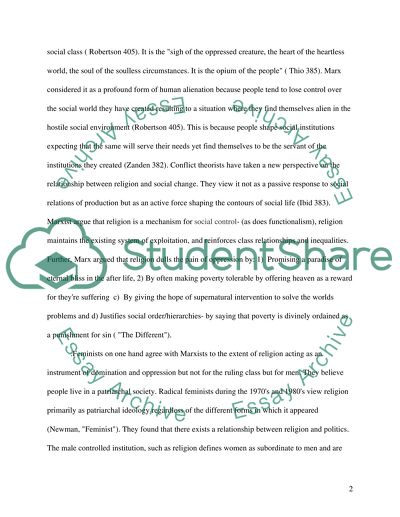Cite this document
(“Comparing and contrasting functionalist,marxist and feminist Essay”, n.d.)
Retrieved from https://studentshare.org/religion-and-theology/1422823-comparing-and-contrasting-functionalistmarxist-and-feminist-perspective-on-religion
Retrieved from https://studentshare.org/religion-and-theology/1422823-comparing-and-contrasting-functionalistmarxist-and-feminist-perspective-on-religion
(Comparing and Contrasting functionalist,marxist and Feminist Essay)
https://studentshare.org/religion-and-theology/1422823-comparing-and-contrasting-functionalistmarxist-and-feminist-perspective-on-religion.
https://studentshare.org/religion-and-theology/1422823-comparing-and-contrasting-functionalistmarxist-and-feminist-perspective-on-religion.
“Comparing and Contrasting functionalist,marxist and Feminist Essay”, n.d. https://studentshare.org/religion-and-theology/1422823-comparing-and-contrasting-functionalistmarxist-and-feminist-perspective-on-religion.


